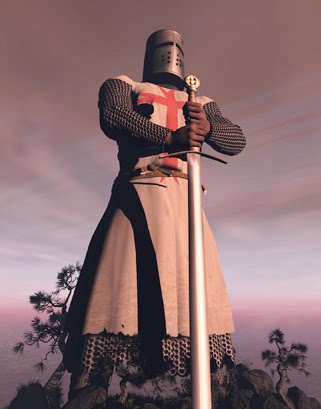
Dear Friends, as I have recently started the book by Mike Aquilina a renowned Catholic writer on "The Fathers of the Church" My goal is to unravel the mysteries and shed some light about the Fathers of the Church. In order to know the Catholic Church from the outside looking in - one must understand the history and lineage.
So, in this blog I will be writing about the how it started and who were the Fathers of the Church. These Father had direct link to the Apostles; they were friends, teachers and students. As the church Doctor Luke the Evangelist writes: in Acts 4:32
"Now the COMPANY of those who believe were of one heart and soul" - Act 4:32.
The whole concerns of the Fathers of the early Church was to preserve the unity and integrity of the "COMPANY of those who believed,".
World’s libraries are filled with books that tell the story about the first Christian centuries as succession of creeds, councils, persecutions and heresies. At each up- rise the Fathers of that family strove to keep their household together and gave their lives protecting the family from danger.
Fathers were a selected group of early Christians that are long revered by the Catholic Church, Orthodox Churches and other churches because of their doctrinal authority.
This Age of the Fathers is also known as the Patristic Era which dates back from middle of first century to the eighth, concluding at the death of St. John of Damascus. As stated before early Church Fathers were disciples of the Apostles and their witness is invaluable because they were the nearest to the Apostles, who in turn were nearest to Jesus Christ.
During the Patristic Era was the extraordinary time where expression and Christian doctrine was developed.
In the New Testament one can clearly see how the Apostles addressed themselves as Fathers.
St. Paul reminds the Christians of Corinth that he was their "father in Christ Jesus" (1 Cor 4:15)
St. John greets his flock as "my children" (3 Jn 4) and "my little children" (1 Jn 2:1).
St. Peter explicitly referred to Christians of his own generation as "the fathers" (2 Pt 3:4).
The custom of calling bishops "Father" was passed on from the Apostles generation. The word "pope" derives from Latin and Greek word means "father".
St. Irenaeus of Lyons at the end of the second century speaks of the "Fathers" not only to the Apostles and Apostolic Fathers, but also to the patriarchs and prophets of ancient Israel.
St. Clement of Rome in his writing shows his pedigree from two Apostles, Sts. Peter and Paul.
St. Polycarp of Smyrna who in turn had learned from St. John the Apostle and the list goes on.
As I unravel this book, my goal is to take you through this journey which will give you concrete evidence of the history of the Fathers and Church.
So, in this blog I will be writing about the how it started and who were the Fathers of the Church. These Father had direct link to the Apostles; they were friends, teachers and students. As the church Doctor Luke the Evangelist writes: in Acts 4:32
"Now the COMPANY of those who believe were of one heart and soul" - Act 4:32.
The whole concerns of the Fathers of the early Church was to preserve the unity and integrity of the "COMPANY of those who believed,".
World’s libraries are filled with books that tell the story about the first Christian centuries as succession of creeds, councils, persecutions and heresies. At each up- rise the Fathers of that family strove to keep their household together and gave their lives protecting the family from danger.
Fathers were a selected group of early Christians that are long revered by the Catholic Church, Orthodox Churches and other churches because of their doctrinal authority.
This Age of the Fathers is also known as the Patristic Era which dates back from middle of first century to the eighth, concluding at the death of St. John of Damascus. As stated before early Church Fathers were disciples of the Apostles and their witness is invaluable because they were the nearest to the Apostles, who in turn were nearest to Jesus Christ.
During the Patristic Era was the extraordinary time where expression and Christian doctrine was developed.
In the New Testament one can clearly see how the Apostles addressed themselves as Fathers.
St. Paul reminds the Christians of Corinth that he was their "father in Christ Jesus" (1 Cor 4:15)
St. John greets his flock as "my children" (3 Jn 4) and "my little children" (1 Jn 2:1).
St. Peter explicitly referred to Christians of his own generation as "the fathers" (2 Pt 3:4).
The custom of calling bishops "Father" was passed on from the Apostles generation. The word "pope" derives from Latin and Greek word means "father".
St. Irenaeus of Lyons at the end of the second century speaks of the "Fathers" not only to the Apostles and Apostolic Fathers, but also to the patriarchs and prophets of ancient Israel.
St. Clement of Rome in his writing shows his pedigree from two Apostles, Sts. Peter and Paul.
St. Polycarp of Smyrna who in turn had learned from St. John the Apostle and the list goes on.
As I unravel this book, my goal is to take you through this journey which will give you concrete evidence of the history of the Fathers and Church.
Reference: The Fathers of the Church - An introduction to the First Christian Teachers by Mike Aquilian.
